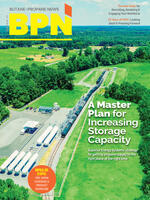
As I sat on the grand porch of the historic 120-year-old Mount Washington Hotel in Bretton Woods, New Hampshire, overlooking the beautiful White Mountains, I was consumed with the concept of action versus inaction and how the decision to act or move — no matter how small — changes everything.
The hotel’s history brought this concept to mind. Back in 1944, delegates from around the world converged at the plush Mount Washington Hotel with the goal to devise a plan that would ensure post-war prosperity through economic cooperation. The United Nations Monetary and Financial Conference, known as the Bretton Woods Conference, would result in the creation of the World Bank and the International Monetary Fund.
It was nice to take a moment and appreciate not only the architectural magnificence of my surroundings and the breathtaking nature, but also the impact and historical significance these meetings would have on the world over the next 75 years. It was an historic event. Someone decided to act and make that event happen. I wonder if they had even an inkling of how significant those decisions would come to be.
I had attended the Northern New England Energy Conference, which had concluded that morning, at the very same historic venue in New Hampshire. It was a content-rich event and provided important business insights and regulatory updates for all attending fuel dealers and industry vendors.
Thought leaders, entrepreneurs and industry legends shared their ideas and concepts to help companies maneuver the many obstacles and challenges the industry faces daily as they ensure their customers’ peace of mind and seamless service. It’s a lot to handle as the industry operates in a constant state of flux, making it necessary to always be on your toes to navigate the treacherous terrain of shifting regulatory policies, customer needs and wants and implementing new technologies that can help fuel dealers be more efficient and profitable in today’s digital economy.
It’s always great to see old friends, customers and industry colleagues, as relationships built over the years often grow into lifelong friendships. Who knows? Maybe 75 years from now, people will reflect on some of the industry accomplishments and attribute them to the successful collaboration and vision shared over those few days. We shall see.
It’s Decision Time
 In April 2021, the payment landscape drastically changed for the worse for heating fuels dealers operating in the United States. After more than 15 years, they are no longer eligible to participate in a reduced Visa credit interchange category, resulting in a significant increase in fees the likes of which this industry has never seen before.
In April 2021, the payment landscape drastically changed for the worse for heating fuels dealers operating in the United States. After more than 15 years, they are no longer eligible to participate in a reduced Visa credit interchange category, resulting in a significant increase in fees the likes of which this industry has never seen before.
To further compound the issue, Visa eliminated the discounted program for fuel dealers and simultaneously released its largest general rate increase in the last 25-plus years. This greatly increased the processing expenses associated with accepting Visa credit cards. Adding insult to injury, consumer Visa credit cards represent the largest pool of card types in the marketplace today.
I have spent the greater part of the last 20 years directly communicating with the credit card brands on behalf of the heating fuels industry. And in my opinion, the recent decision regarding Visa credit is hard to fathom and flat-out unreasonable.
These recent increases are detrimental to the industry as they eat into the hard-earned profits you earn each day by providing your customers important essential services, comfort and peace of mind. How many other businesses are literally trusted with the keys to access their customers’ homes and businesses?
How & When Do Card Brands Update Their Pricing?
This very important information is shared twice a year (in April and October) via a generic statement message on your monthly credit card statements. It might as well be in Mandarin, but if comprehended, it would still take the likes of Albert Einstein to understand the impact and relevance the changes may or may not have to your business’s bottom line — never mind what should be done to combat it.
Interchange is the complex pricing matrix utilized by the card brands and consists of hundreds of different pricing categories. These different pricing categories consist of percentages, transaction fees, qualification requirements, assessments and flat fees.
Merchant industry types and how transactions are processed are key factors that contribute to processing costs. In addition, the timeliness of settling transactions and the type of information passed along to the card brands plays a significant role when determining actual processing costs.
In other words, it takes a specialized merchant service provider with a deep understanding of both processing and technology to properly capture and pass the correct data to the processor in order to qualify for the most efficient “target interchange” for each specific card type.
To make it even more confusing, each card brand has its own interchange pricing for debit, credit, rewards, corporate and business cards, and all the qualifications of each “target interchange” must be executed perfectly in order to properly qualify.
As the entrepreneur responsible for creating utility processing rates for the heating fuels industry back in 2005, I have a unique perspective of how processing and technology intersect and how they relate to the dynamic accounting functions of recurring transactions.
Continuously striving to push the envelope forward and incorporating next-generation technology with new alternative payment forms is key to staying ahead in the digital economy. Partnering with a consultative merchant service provider that understands your business is critical, as they can help navigate the landscape.
For an even greater perspective of the heating fuels industry, just think about the vast differences between the multi-generational heating fuels industry compared to the conglomerate utility companies that trade on the New York Stock Exchange.
This industry is different; it is an industry that focuses on individual customers, and it cares about customers’ immediate needs.
This is where “big business” often drops the ball; their priorities are the investors and shareholders of the company, which in turn forces the majority of publicly traded companies to look at daily operations and overall priorities differently than you do.
There was a time when good service and pride led the charge, as it was sewn into the fabric of many companies both large and small. However, the landscape has drastically changed, compounded by advancements in technology, access to data and greater transparency. It is intimidating enough to compete in today’s world, but throw all these additional obstacles into the mix and it is downright daunting.
From a competitive vantage point, there is no question that “big business” can utilize resources to help tip the scales in its favor and win additional market share in the process.
The heating fuels industry is unique as it is made up of thousands of family-run businesses that now, more than ever, need to think creatively to compete in an environment where the odds are inherently stacked against them.
It is this characteristic that attracts me to this industry. I grew up in an entrepreneurial family; I was taught to care about our clients just as you do today. We always looked at ways to deliver professional service while showing our appreciation for our customers’ business.
When it comes to electronic payments, all four major brands (Visa, MasterCard, Discover and American Express) are publicly traded companies that operate around the globe.
As mentioned above, they have a lot to prove as they trade in public markets where good news and big profits are constantly on display for stockholders and investors.
The Math
To illustrate what this really means for the average fuel dealer accepting consumer Visa credit cards, it will cost them (you) an additional $3 per transaction based on an average transaction size of $400.
What cost dealers approximately $6 on April 1 now costs them roughly $10 for accepting the same card. The Visa credit pre-increase cost of $6 was already three times the cost of running a MasterCard or Discover credit card; now, we’re looking at $10.
It is unfathomable to simply accept this as the new norm. This industry cannot just take it on the chin because “big business” needs to report larger earnings to Wall Street.
What Should You Do?
Consider this: For every 100 customers you convert from using a Visa credit card to a MasterCard, Discover card, Visa debit card or eCheck/ACH, you will perpetually save $4,000 a year. Converting 2,500 customers equates to an annual savings of $100,000, while 5,000 customer conversions yields an annual savings of $200,000 and 10,000 customer conversions translates to $400,000 of annual savings.
Once again, the time has come for the heating fuels industry to be innovative and approach this in a strategic manner that empowers the industry to fight against these exorbitant rate increases. The time has come to creatively out-maneuver these burdensome expenses while embracing the opportunity to engage with customers and build loyalty, stickiness and added value that truly differentiates you from your competition.
It is no easy task, but I can assure you if handled properly, the byproducts of executing a well-thought-out plan will yield great dividends to your organizations and the entire industry. Let us once again come together and rise above the tsunami of big business. Let’s build off the past just like the world did some 75 years ago; but let’s recognize the importance today, more than ever, that driving innovation and ingenuity is the foundation of America and the great spirit of our nation.


